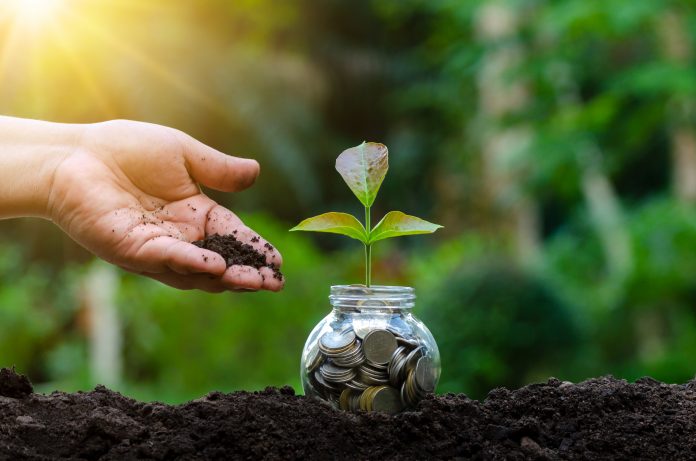Courtesy : en.wikipedia.org
Green economy
A green economy is an economy that aims at reducing environmental risks and ecological scarcities, and that aims for sustainable development without degrading the environment. It is closely related with ecological economics, but has a more politically applied focusThe 2011 UNEP Green Economy Report argues “that to be green, an economy must not only be efficient, but also fair. Fairness implies recognizing global and country level equity dimensions, particularly in assuring a Just Transition to an economy that is low-carbon, resource efficient, and socially inclusive.”
A feature distinguishing it from prior economic regimes is the direct valuation of natural capital and ecological services as having economic value (see The Economics of Ecosystems and Biodiversity and Bank of Natural Capital) and a full cost accounting regime in which costs externalized onto society via ecosystems are reliably traced back to, and accounted for as liabilities of, the entity that does the harm or neglects an asset.
Green sticker and ecolabel practices have emerged as consumer facing indicators of friendliness to the environment and sustainable development. Many industries are starting to adopt these standards as a way to promote their greening practices in a globalizing economy. Also known as sustainability standards, these standards are special rules that guarantee the products bought don’t hurt the environment and the people that make them. The number of these standards has grown recently and they can now help build a new, greener economy. They focus on economic sectors like forestry, farming, mining or fishing among others; concentrate on environmental factors like protecting water sources and biodiversity, or reducing greenhouse gas emissions; support social protections and workers’ rights; and home in on specific parts of production processes.
Green economists and economics
Green economics is loosely defined as any theory of economics by which an economy is considered to be component of the ecosystem in which it resides (after Lynn Margulis). A holistic approach to the subject is typical, such that economic ideas are commingled with any number of other subjects, depending on the particular theorist. Proponents of feminism, postmodernism, the environmental movement, peace movement, Green politics, green anarchism and anti-globalization movement have used the term to describe very different ideas, all external to mainstream economics.
The use of the term is further ambiguated by the political distinction of Green parties which are formally organized and claim the capitalised Green term as a unique and distinguishing mark. It is thus preferable to refer to a loose school of “‘green economists”‘ who generally advocate shifts towards a green economy, biomimicry and a fuller accounting for biodiversity. (See The Economics of Ecosystems and Biodiversity especially for current authoritative international work towards these goals and Bank of Natural Capital for a layperson’s presentation of these.)
Some economists view green economics as a branch or subfield of more established schools. For instance, it is regarded as classical economics where the traditional land is generalized to natural capital and has some attributes in common with labor and physical capital (since natural capital assets like rivers directly substitute for man-made ones such as canals). Or, it is viewed as Marxist economics with nature represented as a form of Lumpenproletariat, an exploited base of non-human workers providing surplus value to the human economy, or as a branch of neoclassical economics in which the price of life for developing vs. developed nations is held steady at a ratio reflecting a balance of power and that of non-human life is very low.
An increasing commitment by the UNEP (and national governments such as the UK) to the ideas of natural capital and full cost accounting under the banner ‘green economy’ could blur distinctions between the schools and redefine them all as variations of “green economics”. As of 2010 the Bretton Woods institutions (notably the World Bankand International Monetary Fund (via its “Green Fund” initiative) responsible for global monetary policy have stated a clear intention to move towards biodiversity valuation and a more official and universal biodiversity finance.Taking these into account targeting not less but radically zero emission and waste is what is promoted by the Zero Emissions Research and Initiatives. The UNEP 2011 Green Economy Report informs that “based on existing studies, the annual financing demand to green the global economy was estimated to be in the range US$1.05 to US$2.59 trillion. To place this demand in perspective, it is about one-tenth of total global investment per year, as measured by global Gross Capital Formation.”
At COP26, the European Investment Bank announced a set of just transition common principles agreed upon with multilateral development banks, which also align with the Paris Agreement. The principles refer to focusing financing on the transition to net zero carbon economies, while keeping socioeconomic effects in mind, along with policy engagement and plans for inclusion and gender equality, all aiming to deliver long-term economic transformation.
The African Development Bank, Asian Development Bank, Islamic Development Bank, Council of Europe Development Bank, Asian Infrastructure Investment Bank, European Bank for Reconstruction and Development, New Development Bank, and Inter-American Development Bank are among the multilateral development banks that have vowed to uphold the principles of climate change mitigation and a Just Transition. The World Bank Group also contributed.





